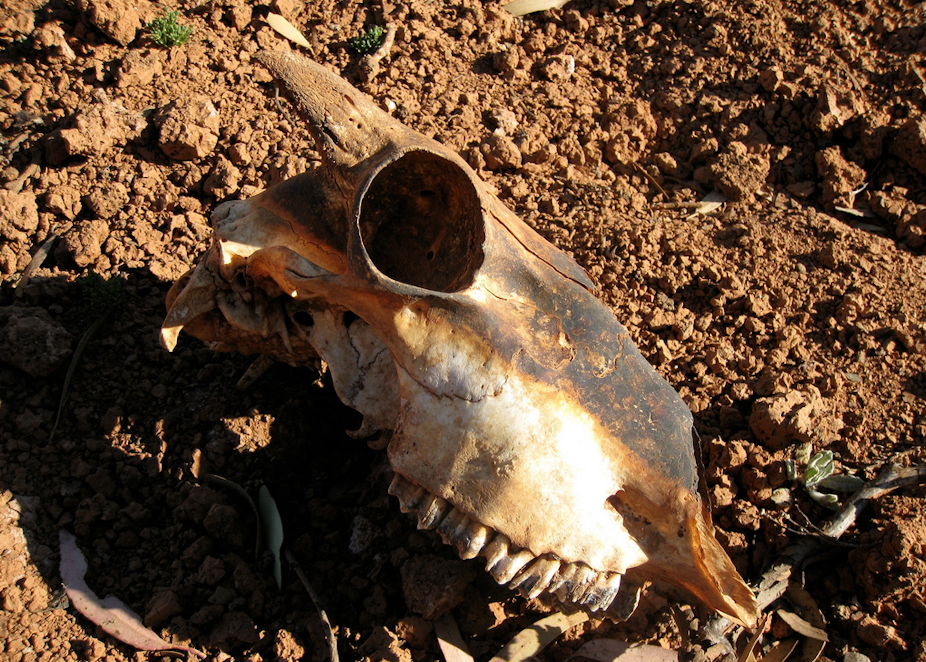The release of a Senate report into a Commonwealth water trigger marks another chapter in a debate that has simmered and bubbled for 30 years in Australia.
The report recommends that the main Commonwealth environment laws be amended to control large coal mines and coal seam gas projects impacting on water resources. The common shorthand for this is the “water trigger”.
The public debate and submissions to the Senate inquiry were strongly flavoured by the anti-regulation ideology pushed by industry groups which oppose the Commonwealth’s environmental role and argue it is unnecessary duplication of government.
Industry groups such as the Minerals Council of Australia also coloured their submissions with claims that the water trigger represented an:
unnecessary encroachment of Commonwealth powers into State jurisdictions, raising concerns of sovereign risk – clear Constitutional responsibility for the management of waters rests with the States.
At the heart of the debate are perennial disputes about the role of the Commonwealth government in managing water resources and the environment generally.
Genesis of the water trigger
The genesis of the new water trigger is widespread community concern about the impacts of large coal seam gas (CSG) projects on water resources.
Independent MP Tony Windsor was instrumental in pushing for the new water trigger, echoing the widespread concern in rural communities affected by CSG development.
The new trigger was announced in March and passed by the House of Representatives before being reviewed by a Senate committee, which has now recommended it be passed by the Senate.
Need for the water trigger
Many industry groups argued in submissions to the Senate inquiry into the water trigger that there was no need for it as state approval processes are adequate.
A significant blow to that argument occurred in April when ABC Four Corners aired an interview with a former Queensland Government employee who spoke of very poor assessment processes being followed for two of three major CSG projects in Queensland.
The whistleblower, Simone Marsh, was employed in early 2010 by the Queensland Government office conducting the environmental impact assessment for large CSG projects.
She said that when she raised concerns about the lack of information provided in relation to groundwater for one project:
I was taken into a meeting room, sat down and told that there wasn’t going to be a chapter on groundwater and I was … stunned. I said “What are you talking about? What do you mean there’s not going to be a chapter on groundwater? It’s one of the biggest issues for the project”. And he just repeated the words that there was not going to be a groundwater chapter in the Santos Coordinator General’s report and wouldn’t give me any reason why or why not.

This evidence of the poor decision making processes at a state level for such a major CSG project indicates that there is a need for Commonwealth oversight for water resources affected by CSG development.
Legitimate role for the Commonwealth
The new water trigger does not replace state-level approval processes; it merely provides an oversight role for the Commonwealth.
In Australia’s federal system of government the Commonwealth has an important and legitimate role in overseeing state government decisions, including decisions concerning the environment.
The Commonwealth’s wide constitutional powers to protect the environment were established 30 years ago in the Tasmanian Dam dispute.
In addition to appropriately responding to a need for federal oversight, the new water trigger is unlikely to add significantly to costs and delays for projects.
There is a contradiction in the submissions by industry groups to the Senate inquiry that claimed there is no need for the trigger (because state processes are adequate) while also claiming that the new trigger will add to costs and delays.
If states are doing a good job of assessing groundwater impacts of CSG and mining projects, then there should be little additional costs or delay in providing that information to the Commonwealth to review.
The new water trigger is an appropriate response to community concerns about the impacts of large mines and CSG projects on water resources. The task now will be to implement it well.

